Where Are the African HealthTech Unicorns?
While fintech gallops toward billion-dollar valuations, African healthtech startups are stuck in the maternity ward of funding. This post explores why health startups haven’t yet hit unicorn status — and what we can do about it.

"The goat that stays in one place will die of hunger." — Nigerian proverb
Let’s start with the obvious: Africa’s fintech scene is flossing in gold chains while healthtech is still trying to borrow transport money to the pitch deck meeting.
Flutterwave hit unicorn status in 2021 (TechCrunch, 2021). Chipper Cash galloped right after. Andela and Wave? Same WhatsApp group. Meanwhile, African healthtech startups—despite building tools that literally save lives—are still in the kiddie pool of venture capital, begging for pre-seed grants and “visibility.”
So yes, the billion-dollar question is this: Where are the African healthtech unicorns?
What’s a Unicorn, Anyway?
In startup land, a “unicorn” is a private company valued at $1 billion USD or more. It's rare, majestic, and usually wearing a pitch deck with 100 slides. But unlike mythical creatures, unicorns do exist in Africa—just not (yet) in healthcare.
Why Fintech Keeps Winning the Billion-Dollar Race
Let’s be fair. The fintech sector has:
-
Clear revenue models: Transaction fees, transfers, subscriptions.
-
Massive addressable markets: Mobile money is everywhere. Even grandma uses M-PESA.
-
Fast adoption: People like money. People hate banks. Easy sell.
Investors love fintech because it's like suya—hot, fast, and spicy. Healthtech? It’s more like fufu. Heavy. Complex. Requires slow chewing.
Why Healthtech Isn’t Getting That Billion-Dollar Valuation (Yet)
1. Complex Business Models
Health isn’t just about selling a pill. You’re dealing with:
-
Governments
-
NGOs
-
Hospitals with no Wi-Fi
-
Regulatory bodies with 3-month tea breaks
You can’t "move fast and break things" in healthcare. Because what if the thing you break is… a patient?
2. Donor Dependency and Grant Brain
Too many startups are still built around grants, not scale. They’re great at writing proposals, less great at writing revenue models.
As someone once joked in Nairobi:
"African health startups don’t sell products, they sell PowerPoints."
3. Fragmented Health Systems
Each country has its own rules, billing systems, and drug lists. What works in Kenya may flop in Egypt. That makes scaling... painful.
But Don’t Write Off African Healthtech Just Yet
Some serious contenders are rising fast. Here are a few building scalable, investable, pan-African solutions:
1. Helium Health (Nigeria)
Digitising hospital records and health financing across West Africa. Already raised over $30 million USD.
🔗 https://www.heliumhealth.com
2. 54gene (Nigeria)
Genomics meets African DNA. They raised $45 million, before pivoting due to market realities. A cautionary tale, but also proof of investor appetite.
🔗 https://54gene.com
3. Zipline (Rwanda, Ghana, Nigeria)
Drone-powered medical deliveries. Global unicorn headquartered in the US, but most operations are African. Technically not born here, but drinks our water.
🔗 https://flyzipline.com
4. mPharma (Ghana)
Pharmacy supply chain and management. Operating in 9 countries. Raised $65 million USD. Probably closest to African-born healthtech unicorn status.
🔗 https://mpharma.com
So What Will It Take to Birth a Healthtech Unicorn in Africa?
1. Bigger Bets, Not Bigger Proposals
We need venture capital with patience. Not just "impact capital" with 18-page KPIs and 6-month timelines.
2. Real Products That People Pay For
Want to be a unicorn? Start charging people, not just donors. If mama Amina is using your app and paying with M-PESA, you're onto something.
3. Pan-African Thinking
A Nigerian startup that only works in Lagos won't make it. The unicorns of tomorrow will scale from Accra to Addis.
4. Youth-Led Teams
The continent is young. The unicorns will be too. Support that 24-year-old with a prototype and a dream. Not the retired uncle with a PDF and a cousin in government.
Conclusion: The Unicorns Are Coming — If We Clear the Way
Look, we don’t need a unicorn in healthtech just for the headline. We need it because it will show that saving lives can also be a viable business. That investors can build wealth and health.
And when that African healthtech unicorn is born, may it not be said we fed it leaves while fintech got meat.
“Even the blind man knows when the market is over.”
Let’s not wait until the world has moved on before we back our own.
References
Helium Health. (2024). Digitising African healthcare systems. https://www.heliumhealth.com
mPharma. (2024). Redefining pharmacy access in Africa. https://mpharma.com
Zipline. (2024). On-demand drone deliveries. https://flyzipline.com
TechCrunch. (2021). Flutterwave hits unicorn status. https://techcrunch.com/2021/03/10/flutterwave-unicorn
54gene. (2024). Genomic research in Africa. https://54gene.com
What's Your Reaction?
 Like
0
Like
0
 Dislike
0
Dislike
0
 Love
0
Love
0
 Funny
0
Funny
0
 Angry
0
Angry
0
 Sad
0
Sad
0
 Wow
0
Wow
0




















































